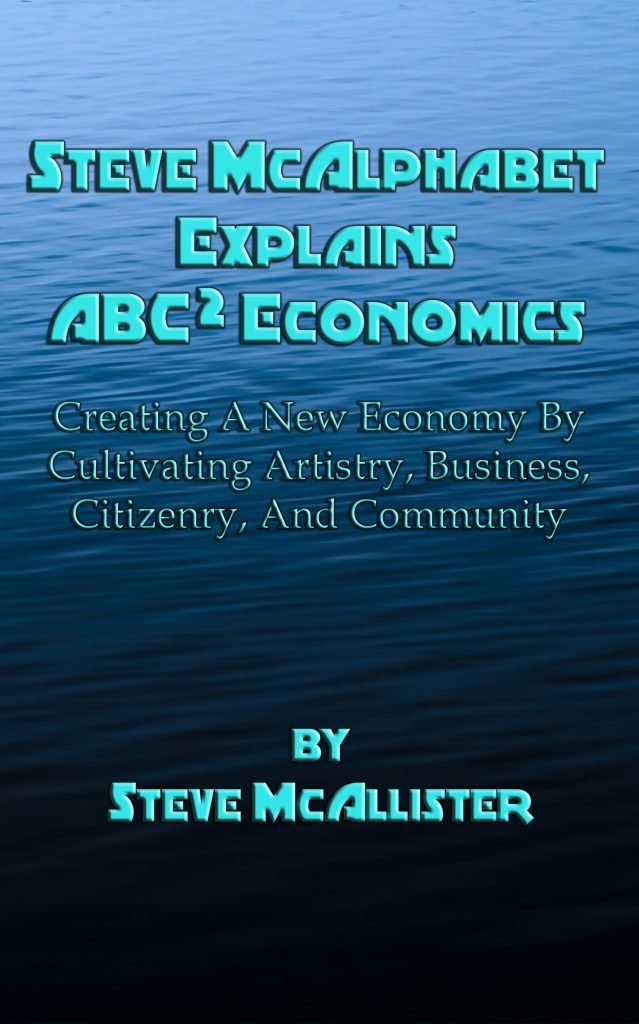“The four characteristics of humanism are curiosity, a free mind, belief in good taste, and belief in the human race.”
– E.M. Forster
Say what you will about economics, it is nothing if not idealistic. It is even imagined that there will come a time when the challenges it does pose are all worked out and no one will ever have to suffer from economic inequality or poverty again. The father of modern economics, John Maynard Keynes said, “the day is not far off when the economic problem will take the back seat where it belongs, and the arena of the heart and the head will be occupied or preoccupied, by our real problems – the problems of life and of human relations, of creation and behavior and religion.”
We may still have a ways to go before we reach Keyes’ ideal, but it may very well be that we are well on our way. And it is my hope that ABC2 Economics can help us to do just that. But to prepare the arena of the heart and head, we need to know what we really want.
“True happiness,” Aristotlewrote almost 2500 years ago, “flows from the possession of wisdom and virtue, and not from the possession of external goods. But a virtuous life must be equipped with external goals as instruments.”
As Aristotle wrote centuries ago, and as pretty much every spiritual teacher and philosopher worth their salt has said since, material possessions are not the goal. Obviously, that wisdom stands in stark contrast to the current message of the Market Economy, where one of the fastest growing industries is storage space for all of our extraneous material possessions and other external goods. And one of the most difficult challenges to face nearly any human in this generation is to hear that wisdom over the din of the constant noise generated by the hucksters, salesmen, and celebrities of the marketplace, all trying to convince you that their goods will make you happy.
For those who wish to embrace the wisdom of the ages, we consciously make time to separate ourselves from the noise of the marketplace, enjoying moments of silence, empowering artistic flow, good company, and the virtues we truly seek rather than what the marketplace would have us pursue. We do not wait for the day when economic problems will take the back seat. We put them in the back seat. Then we can engage the arena of the heart and head, and address what is important to us rather than the fads and schemes of the marketplace.
For us to have a truly vibrant economy, we the people must do a better job of participating in it and taking control of it, and ironically, we must also let go of it and redirect our energy toward participating in the other aspects of our lives. That is, of course, a considerable challenge in this age of the ‘attention economy’ where the plethora of memes, articles, videos, and pictures all clamor for our cognizance. And it is especially difficult in a media landscape that showcases so many messages of anger, fear, grief, shame, and other forms of lower consciousness.
“Energy follows attention,” C. Otto Scharmer says in Leading from the Emerging Future: From Ego-System to Eco-System Economies. “Wherever you place your attention, that is where the energy of the system will go. ‘Energy follows attention’ means that we need to shift our attention from what we are trying to avoid to what we want to bring into reality.”
The human brain can only process 126 bits of information per second. If we hope to take control of our lives, we had better start paying more attention to which 126 bits are processed. Not only do we need to be more conscious of the media we consume, but also more considerate of the various levels of relationships we have with the world we inhabit.
“As individuals,” Scharmer continues, “we must begin to pay attention to our attention (self-awareness); as teams, we must begin to converse about our conversations (dialogue); as enterprises, we must begin to organize our organizing (networks of networks: eco-systems); and as eco-systems, we must begin to coordinate our coordinating (systems of awareness-based collective action, or ABC).”
While this is certainly more complicated than merely continuing our existence as consumers while the Market Economy continues its drive toward domination, it does offer us those tangible “external goals” of which Aristotle spoke. And should we channel our effort and energy toward creating the world we want, we will have a much brighter and longer future than the marketplace would allow, one in which our true desires can come to light, rather than those that have been manufactured for us.

This is an excerpt from the book Steve McAlphabet Explains ABC Squared Economics. Go to https://stevemc.xyz/books/steve-mcalphabet-explains-abc-squared-economics/ to find out more.


